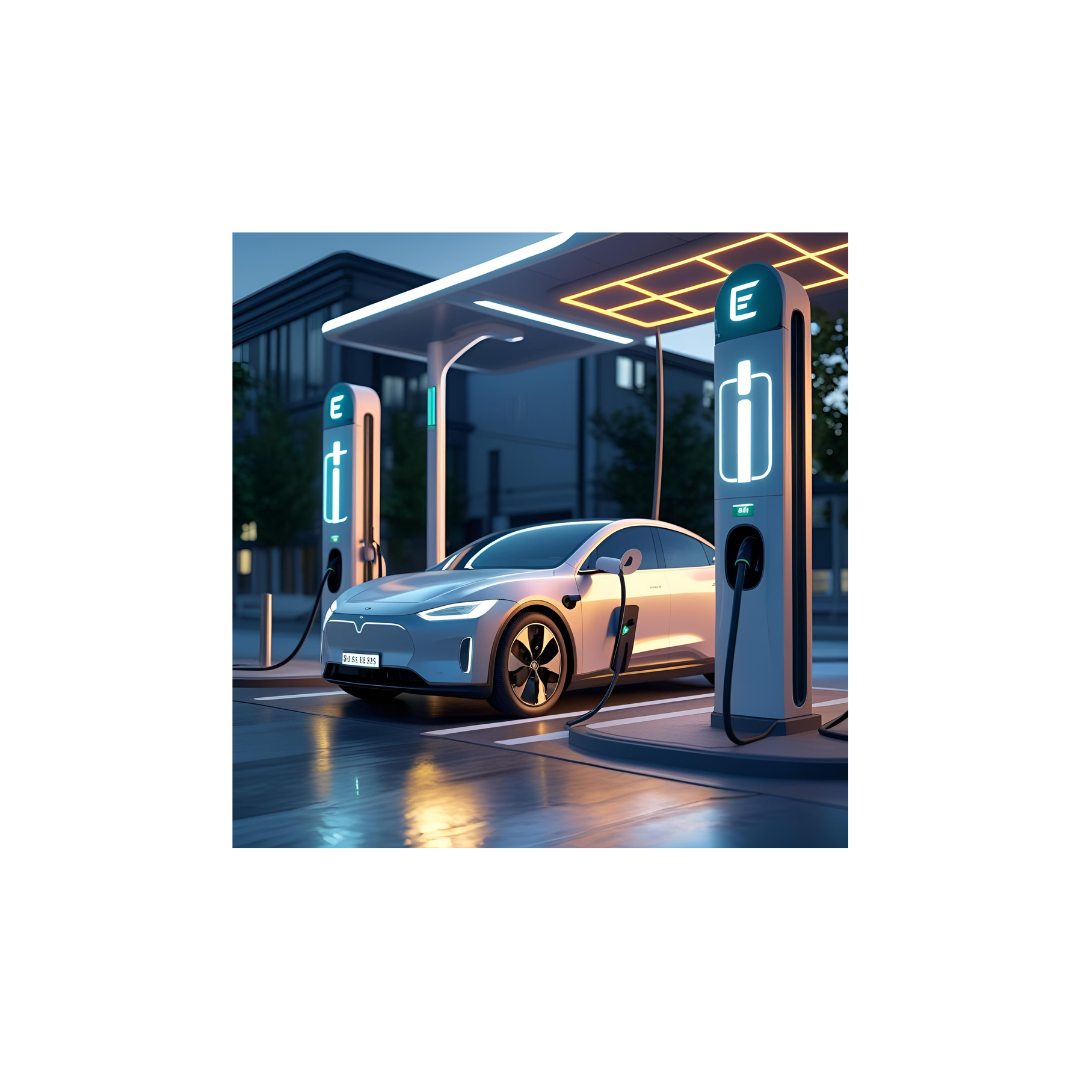EV Charging Station Guide: Everything You Need to Know
As electric vehicles become increasingly popular, understanding the charging infrastructure is crucial for both current and prospective EV owners. This comprehensive guide covers everything you need to know about EV charging stations, from home installation to navigating public charging networks.
Types of EV Charging
Thinking about your next EV? Compare real listings and filter by range, price and brand.
Level 1 Charging (120V)
Level 1 charging uses a standard household outlet and is the slowest charging option:
- Charging Speed: 2-5 miles of range per hour
- Best For: Overnight charging or emergency top-ups
- Cost: Minimal - uses existing outlet
- Installation: No installation required
Level 2 Charging (240V)
Level 2 charging is the most common home charging solution:
- Charging Speed: 10-60 miles of range per hour
- Best For: Daily charging needs
- Cost: $500-$1,500 for equipment + installation
- Installation: Requires professional electrician
DC Fast Charging (Level 3)
DC fast charging is the fastest option, typically found at public stations:
- Charging Speed: 60-200+ miles of range in 20-30 minutes
- Best For: Long-distance travel and quick top-ups
- Cost: $0.30-$0.60 per kWh (varies by network)
- Installation: Commercial installations only
Home Charging Installation
Planning Your Installation
Before installing a home charger, consider:
- Electrical Panel Capacity: Ensure your panel can handle the additional load
- Location: Choose a convenient location near your parking spot
- Weather Protection: Consider outdoor installation requirements
- Future-Proofing: Install a higher-capacity circuit for future needs
Installation Process
- Assessment: Have an electrician assess your electrical system
- Permits: Obtain necessary permits from your local municipality
- Installation: Install the circuit and charging station
- Inspection: Have the installation inspected and approved
Public Charging Networks
Major Charging Networks
Several companies operate public charging networks across the country:
Tesla Supercharger Network
- Coverage: Extensive network across the US
- Compatibility: Tesla vehicles (some stations open to other EVs)
- Speed: Up to 250 kW
- Cost: Varies by location and time of day
Electrify America
- Coverage: Growing network nationwide
- Compatibility: All EVs with CCS or CHAdeMO connectors
- Speed: Up to 350 kW
- Cost: $0.43 per kWh (member pricing)
ChargePoint
- Coverage: Extensive Level 2 and DC fast charging
- Compatibility: All EVs
- Speed: Level 2 and DC fast charging
- Cost: Varies by location and network
Charging Connectors and Standards
Common Connector Types
- J1772: Standard Level 1 and Level 2 connector (all EVs except Tesla)
- Tesla Connector: Proprietary connector for Tesla vehicles
- CCS (Combined Charging System):strong> DC fast charging standard
- CHAdeMO: DC fast charging standard (primarily Nissan Leaf)
Charging Costs and Economics
Home Charging Costs
Home charging is typically the most cost-effective option:
- Electricity Rate: $0.10-$0.20 per kWh (varies by location)
- Cost per Mile: $0.03-$0.06 (vs. $0.10-$0.15 for gasoline)
- Annual Savings: $500-$1,500 compared to gasoline
Public Charging Costs
Public charging costs vary significantly:
- Level 2: $0.20-$0.40 per kWh
- DC Fast Charging: $0.30-$0.60 per kWh
- Membership Programs: Often offer discounted rates
Charging Best Practices
Battery Health
- Keep your battery between 20% and 80% for optimal health
- Avoid frequent DC fast charging when possible
- Don't leave your EV at 100% charge for extended periods
- Use scheduled charging to optimize battery temperature
Charging Efficiency
- Charge during off-peak hours for lower electricity rates
- Use your vehicle's built-in charging scheduler
- Consider solar panels for even more cost savings
- Monitor your charging habits through your vehicle's app
Future of EV Charging
The EV charging infrastructure is rapidly evolving:
- Wireless Charging: Inductive charging pads for home and public use
- Vehicle-to-Grid (V2G): Using EVs as energy storage for the grid
- Ultra-Fast Charging: 350+ kW charging stations becoming more common
- Smart Charging: AI-powered charging optimization
Conclusion
Understanding EV charging is essential for maximizing the benefits of electric vehicle ownership. Whether you're charging at home or on the road, knowing your options and best practices will help you save money and maintain your vehicle's battery health.
Ready to explore EV charging options? Check out our marketplace for electric vehicles and start your journey toward sustainable transportation!

